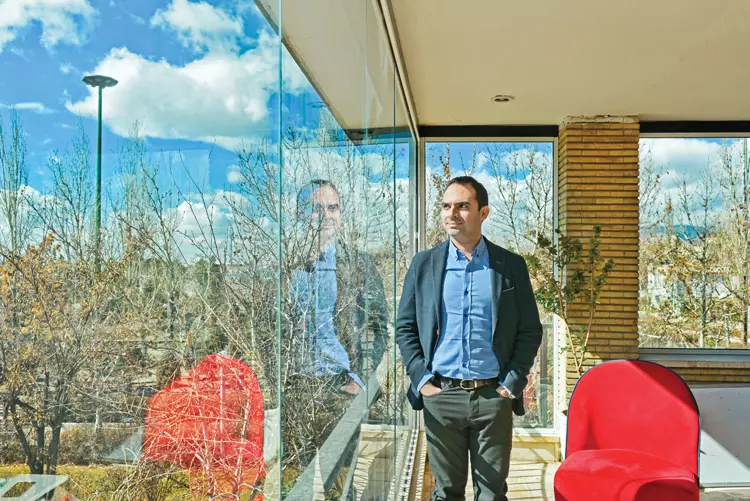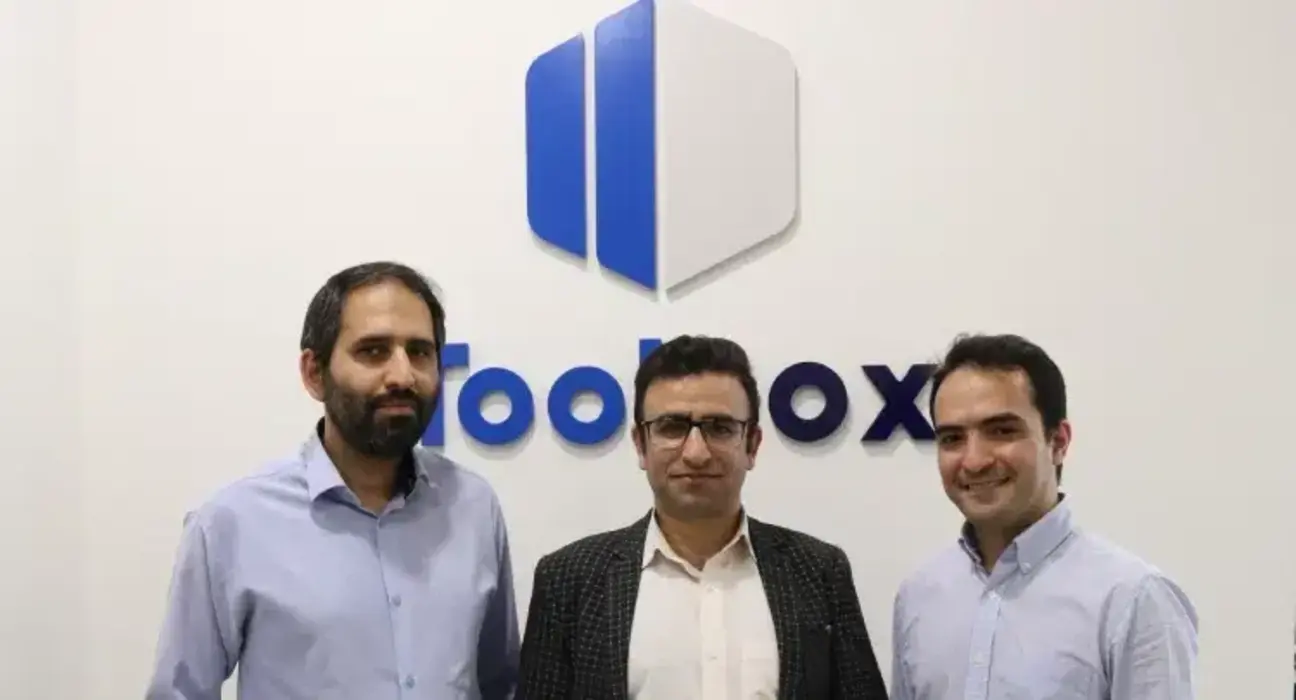Next generation of entrepreneurs
Here is the talk with three startup activist;Mershad MosaKhani, Sina Shafi Zadeh, Mohammad Mehdi Barideh, Hasan Najafi and Mehdi Yeganeh.
-
What is your definition of startup?
Mehrshad MosaKhani: startup is a small economic agency that is looking for scalable and repeatable business model until it finds it or we can say a newly established company that is looking for these things.
While for example traditional businesses like a physical clothing store doesn’t scale the market and it is not supposed to provide service to all parts of the country.
Its difference with big companies is the high rate of growth. We have grown up to 80% in Avatech. A big business can’t have such a growth.
Sina ShafiZadeh: I prefer not to use the term “startup”. As Mehrshad has mentioned, discussions related to being scalable are among the most important features of such businesses.
We have two metrics for defining startup; one is that compared to the number of people you have, how much money do you make? The proportion of these two determines how you could scale.
A local business or a non-scalable business should increase the number of workforce and space and etc. if it wants to increase its turnover.
The second metric is the hope for grow; in startup there is a hope for 1000 percent growth which is not present in other businesses.
-
Why don’t we say startup?
Sina ShafiZadeh: it’s better to say entrepreneur because startup has got a negative connotation. People think that startups are young people who are idle all the time and they do nothing but coding. Thus we prefer to introduce ourselves as a company rather than a startup.
-
Which things and people are affected negatively by such an insight?
Sina ShafiZadeh: who are called super stars in America?! Their entreprenuers. But in Iran, artists and actors are super stars.
In fact they know the importance of entrepreneurship but in Iran the aim is to make barriers in the way of an entrepreneur. Entrepreneurs don’t believe that the government would support them and facilitate their way.
We don’t even expect the government to support us. We want people to judge us based on the value we make for the society.
Mohammad Mehdi Barideh: the initial definition of startup is that it is a temporary organization. Although people don’t pay attention to the temporary part of these businesses and don’t think that they are not going to remain a startup forever.
This organization is looking for a business model temporarily. But each business model is not considered a startup. Scalability and the rate of growth are very important. Startup is able to change; that is, it can be expanded or totally changed.
Mehdi Yeganeh: we have done both traditional and startup work in Fandogh. I prefer to define startup comparing to traditional section of businesses.
When you work in a startup, the power of risk taking is high but in the traditional field, you are faced with a predetermined commitment. Test, risk and jumping are most important features of startups. Changing and testing until you reach a fixed thing and expanding it.
Hasan Najafi: the most important feature of a startup is its several to 100% growth. The value this business makes is also very important, because the service a startup provides can cover all over the world.
Also a few expert and professional people can provide service to all around the world. Irancell with 40,000 employees provide service to Iran and Google once provided service to all over the world with 40,000 employees.
Innovation is another feature of a startup. Learning and progressing based on knowledge are very effective in these kinds of businesses and they choose strategies based on feedback.
-
Another issue is putting all these in an official structure; that is, their common aspect is being present in a field in which you should know the rules. How much do you know about the rules in the market? For example, how much do you pay attention to issues related to insurance and tax as one of the founders of a startup?
Mehrshad MosaKhani: there are two types of employees; those who enter traditional market and those who work in newly-established businesses. All of them are looking for job security.
For example being insured is a kind of job security. But these two groups have two different insights. Startups don’t consider that having an insurance means having job security.
I myself was an employee in the past and earned up to 4 million tomans per month but something always bothered me; my concern for entrepreneurship but in my previous job, I couldn’t implement my opinions.
Sina Shafi Zadeh: we shouldn’t say traditional or modern businesses. Startups form 2 percent of U.S economy; that is, all we know about Google and Amazon and … are only 2 percent of this big economy.
Thus, we can’t say traditional world is dead and here we have only a modern world of businesses named startup. Startups are not alternatives to other businesses. It is the culture of startups that makes difference.
In such businesses there is one thing that is not present in others. One is clarity; we learned that at first we should register the company and all things should be clear.
Because when a domestic or foreign investor checks the background of a company, if it sees a negative spot, it wouldn’t invest on it. Thus paying attention to insurance, tax and the law as a whole in this space are highly respected; this is not crystal clear in other spaces.
There is a principle in Iran law that people have the right to see all the turnovers and financial matters of each company in Iran but which company does truly have this clarity?! While we respect the law in startups.
Mohammad Hadi Barideh: many of startups want to attract capital. The winner is the startup that has clear startup business documents. Even smallest costs should be calculated because it should be determined where the investment attracted is used.
The rule of game is based on two parts; one when you launch a startup and the other is the interaction you have with other people who are related to your business.
These people or organizations can be from public or private sector, because licenses should be received so that startups become related to organizations.
Mehdi Yeganeh: each company should be registered and knows such rules, for example E-symbol rule. If E-symbol is in the name of a person and then it doesn’t transfer to the name of a company, you would have to pay severe penalties in terms of tax.
This is a rule and companies should be registered and receive tax codes. Everybody should know these rules because there are rules in Iran that don’t let people breach the law. Thus everything should be clear and legal.
-
One part of my questions was about insurance. Are the people you employ insured?
Mehrshad MosaKhani: like most of other businesses, we talk to them in the beginning about when we are going to insure them.
Mehdi Yeganeh: when the income of company reaches an acceptable limit, we insure employees. This applies to not only startups but also most of other businesses and it doesn’t have anything to do with being a startup or not.
That is, we shouldn’t call a business owner irresponsible because he hasn’t insured his employers yet. We as founders are interested to be insured but this is not possible until our company make enough money.
Sina ShafiZadeh: in these situations, there are solutions. For example, self-employed insurance whose cost is paid by owner of a startup.
This happens when the company has not registered yet. When it is registered, these tasks should be done.
Hassan Najafi: risk-taking is one of the characteristics of presence in startup space. It is possible that people in this space don’t look for being insured.
Although many of them think insurance is important but when the company is registered, issues about insurance and its tax should be done according to the law.
Moreover, newly-established companies are exempt from two types of taxes and if facilitation of insurance payment for these companies becomes possible, it would contribute to this ecosystem. The simpler the legal requirements, there would be more legitimacy.
Mehdi Yeganeh: there are other problems which the barriers to acting according to law. You should have an active legal bank account, get monthly audit from bank and this process is so horrible that needs so much courage.
Salary and current bank account system is very scary because launching a startup is itself a difficult task and you should spend time on ideas every day and move the work forward.
If you want to enter audit work, you wouldn’t have money for employing an accountant and if an error happens, you should pay severe tax penalties.
Thus such a process for us is very scary because we have just started and we don’t have special financial situation and we only count on our ideas.
Mohammad Mehdi Barideh: I want to mention our own business. Those groups who want to work on FinTech, that is, their businesses are about financial fields, don’t have any determined reference and rule in this regard.
No rule, no license and not even an exact agenda to act in this field so that people can work by referring to them. Thus there is a strange confusion.
Sina ShafiZadeh: we would definitely face these problems. For example, Payping becomes closed because we face lack of rules in this field and if a rule be developed and approved after a year, it wouldn’t be effective because this field is changing each second.
That is, it is a good thing if we wait for optimizing rules, but the problem is that bank and insurance centers are run in a monopolized way.
We as startups don’t have knowledge about bank and insurance and thus they should develop their related laws. But monopoly of bank and insurance hasn’t let other players to enter this field.
If this monopoly is removed, there would form a competition and insurers and professional people in this field would start thinking about developing such laws that provide service to knowledge-based companies and also startups.
But now we are in a long-term process in which rules are developed that would become obsolete and invalid as time goes by.
The main solution is to make a final decision and the fear of sharing the power disappears; that is, the fear that young people and startups enter the market and play a role.
I as a startup shouldn’t think of bank and insurance rules. Those educated in these fields should think about them. They should decide in these fields but according to the current process, very quick decisions would be for at least one year.
Mehdi Yeganeh: because there are no rules and this process is scary, people refer to shortcuts; that is, we promote breaches by lack of rules.
Mohammad Mehdi Barideh: because of these monopolies, we don’t have big startups in financial, tourism and cultural field because we have many limits in this field.
The market belongs to some limited people and they don’t let others to enter the market. If they enter the market, they would work for a short period.
Mehdi Yeganeh: lack of definite rules and incidences that close a business within several hours, has many consequences.
For example, some of the startups that worked with Payping, after Payping closed, they became closed too.
Hassan Najafi: I think the reason for all these conflicts with startups is that these businesses use spaces which could belong to traditional institutions.
For example, Snapp replaces taxi agencies or Payping do a part of what can be done traditionally by banks.
Mehdi Yeganeh: for example taxi organization wants to compete with Snap and Tab30 with its yellows taxis.
Sina ShafiZadeh: look at Aparat. It attracts millions of Iranians to domestic space but in the end it is threatened and removed from CafeBazar, although it worked in accordance with government objectives.
Thus we can’t do something special. According to Iran constitution, the monopoly of media is in the hands of IRIB; constitution can’t be optimized.
-
When you say words like lack of stability, monopoly and etc., you definitely have concerns. On the other hand, you are all under 25, have developed businesses and attracted capitals; how and with what tools do you want to stay in the market because it is possible that you face an obstacle?
Mohammad Mehdi Barideh: I want to mention to a diary. In a meeting under the name of FinTech whose subject is examining problems in the field of FinTech in Iran and we attended it, vice president of IT in central bank was there too.
One of the attendees asked him to explain about FinTech. He said: have you watched Godfather? In the beginning, it shows Don Corleone and as a godfather, everyone who works for him is secure.
In the scene, godfather sees a person whose name is Zaza and his daughter is hurt by a gang. Zaza tells Don Corleone that he is ready to give him more money and he gives Zaza security instead.
In Iran system, you face with a competitors who have money and connections which play most important roles in becoming successful.
I concluded that startups should create such connections in order to be successful; that is, money removes all barriers.
Hassan Najafi: we have another problem in this field and that is for example you don’t see Iranian brands in national media but each program showed on Iranian channels, its Telegram and Instagram address is written under it but Aparat become closed and it has no place in national media.
This means promoting foreign services that sometimes they are told to be filtered but in the end their domestic samples are closed.
Sina ShafiZadeh: foreign legislators do their best so that startups grow one thousand percent but everything is reverse in Iran.
We as startup founders can only try. Every day we should have innovation and don’t become discouraged.
Mehrshad MosaKhani: the problem made for Boutique was that we slept and when we woke up, it was filtered. We have been growing 80 percent each month during six months but when they filtered us, we regressed more than 5 months.
Because a vendor who works with boutique, when they saw that it is filtered and we censor the photo of their product, he prefers to work with Instagram; that is, with these rules we eliminate employment and money making from the society.
-
Why were you filtered?
Mehrshad MosaKhani: we have received notices for example to remove a product and we did so. We didn’t resist and obeyed the rules and now there isn’t any part of human body on our site.We even censor nails.
This issue has a negative impact on users and these users refer to Instagram and select each product with the image he wants.
The reason we became filtered was that we put open-front manteaus (coats), although other businesses were selling this product.
During 48 hours, we censored 7000 products on our site. This process led to reduction in users and we failed in this business. They told us that we were going to change the way people wear.
But the truth is the society pay attention to what Instagram offers as fashion. Physical stores sell these products as well. It took a month for us to recover.
I offered written commitment too and I should mention that officials were nice to us. I went to the Justice twice but at first they didn’t understand us.
Sina ShafiZadeh: we expect legislators to support us to enter Iraqi Kurdistan or Pakistan or support Aparat founder to bring MENA video to Iran and launch an Arab section.
Mehrshad MosaKhani: TV presenter announces his Instagram address but we don’t have a place there.
Mehdi Yeganeh: this area is so new and has new problems that it should have new rules and new people so that we can refer to them for solving the problems. These people should know this area and understand us.
Mehrshad MosaKhani: the first time I entered the Justice, I was shocked. It didn’t look like the place I have worked in. I entered a room in which there were several old people who looked tired.
They saw me as a strange creature with a pack-pack, tablet and mobile. After all the explanations, one of them told me: “go to the next room, maybe they can understand what you are saying.”
-
How do you tolerate these problems?
Mohammad Mehdi Barideh: when a business is closed, we don’t have a person to refer to, especially in financial issues.
When they closed our payment gateways, we used Shaparak system and when we refer for official works, they said they didn’t accept any referee.
They say our problem has nothing to do with them. This system is person-based and if a person goes to a vacation, then all the works would stop.
-
How do you manage the crisis?
Mehrshad MosaKhani: organizations we are facing with, don’t understand us. After Boutique was filtered, we thought about taking advantage of this crisis.
This way of thinking exists in startup ecosystem and we should move forward with such a thought. We don’t wait for rules and facilitations. We are used to these situations.
Sina Shafi Zadeh: the big problem is that we don’t have something as “optimizing the rules”. I believe that they understand us very well.
But some people have conflict of interest with startups. Some young people have created traffic and launched a business.
They tolerate them to some extent but if they significantly grow, public officials became alerted that there are people who create and attract capital although they haven’t belonged to them.
The problem is that we haven’t filled up a questionnaire and are not verified. Thus they don’t consider us as one of the members of themselves. We have entered 20,000 dollars to the country and they shouldn’t make us to give them a share.
In fact they should look at our employment. I am married and want to have a good life and I just want to do a business within legal framework.
-
You are accused of not paying attention to the rules. You have made businesses that were in favor of our country thus you are helpful for our society. How much do you care about your people and country?
Hassan Najafi: when I was a student, most of the students were applying to study abroad. I didn’t want to apply and I preferred to stay in my country.
On the other hand, no one knows Iran in social networks. Thus I thought of starting a business to introduce Iran to the world.
Our business hasn’t made profit yet and it would have many problems in the next years but I have this vision. It’s important for me to make a positive thought about Iran all over the world. These positive aspects lead to not considering my country a terrorist.
I want to mention to the recent negative event named Shabnameh in startup ecosystem. Spying is not good and I try my best to cooperate with the government to stop such thing.
Every real entrepreneur tries not to hurt its country. But we should know that spying is different from foreign investment.
We shouldn’t deprive startups from foreign investiment because it is based on web and internet. Foreign investment contributes to the growth of this field.
Mehdi Yeganeh: I always want to do something in favor of others and I want to have a good life myself. I always want to be helpful for mu society. I want to taste success in Fandogh group.
Sina ShafiZadeh: everything we do is in favor of ourselves and our society. We move in the path of entrepreneurship and money making. Thinking everyone as a spy is like betraying the country.
On the other hand, there are big financial problems in other fields which are not startup; that is, being a startup doesn’t necessarily make a problem for the country. For example, Digikala has made many jobs and attracted capitals.
Mohammad Mehdi Barideh: I was employed in Mapna and Raja but I wanted to be more helpful. My concept was that when I enter a group, I want to be successful and make others become successful as well and share this experience with them.
-
One of the problems of young people is lacking capital and they don’t know how to attract capital. How did you attract investment and how did investors trust you?
Hassan Najafi: one of the things we did for attracting investment was crowdfunding; that is, we produced a product and our sale was 20 million tomans with a campaign.
Everyone can do it. The way to persuade investors in our field is being clear and having the ability to predict the market.
We should have the ability to explain business growth and profitability to investors. Sometimes you can succeed without large amount of investment and you shouldn’t lose your hope.
Sina ShafiZadeh: apart from accelerated social networks, we have predicted investment equals to up to 500 million tomans for our business model within one year. Our investor is working in our field too.
Our attractive feature for such a group that works in our field was that we complete product portfolio of that developed business; that is, they have told us that they wanted to do the same but they prefer to work with us instead.
Mohammad Mehdi Barideh: we are in two phases. After accelerating, we were looking for attracting investment. We haven’t been successful in this phase so far, but we have 16000 consumer user from each of which we can make money in four ways.
We told the investor how much money we would make and we reached this amount without using a penny from investment.
Now we are working on other elements for attracting capital. One is our good team, another is our rate of growth and the third one is our technical knowledge in different fields.
Mehdi Yeganeh: a person called us and said how much does the startup you’re going to launch cost?
Sina Shafi Zadeh: they treated us like this. For example, one person told us: how much is the whole thing? I buy it for 10 to 15.














Post Comment